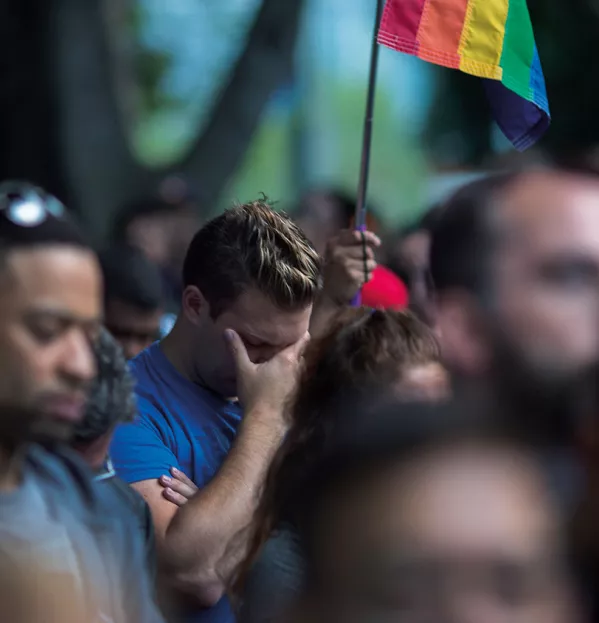LGBT teachers at faith schools ‘fear prejudice’

For LGBT teachers, working in a faith school can present additional complications.
Some faith schools are praised for taking an exemplary approach. But the perceptions of some teachers at other schools leave them too afraid to come out.
Sue Sanders, of the charity Schools Out, gives credit to “faith schools that have done some brilliant work”.
But she continues: “The issue is that faith schools are bound by the law of the country, and it must be made clear to them that they are. And it must be made clear to them that we expect them to be challenging all forms of discrimination.”
When Jonathan Glazzard, who leads the Centre for LGBTQ+ Inclusion in Education at Leeds Beckett University’s Carnegie School of Education, researched the experience of LGBT teachers, he found a number who had negative perceptions related to faith schools.
“If they are working at a faith school they don’t feel able to be open about their sexuality, and they feel that they are under surveillance really,” he says.
“They are talking about religions such as Islam and Catholicism and how that affects the kind of school they are working in and whether they can be open about who they are.”
When teachers were asked whether they felt able to be open about their identity at their school, one teacher in the survey said she felt “a bit nervous about being out with working in a Catholic school”, while another said that “as a ‘Christian ethos’ school with no pastoral education as part of the curriculum, it was hard to begin such conversations and be open with students”.
And writing about challenges to establishing an LGBT inclusive culture for teachers, one teacher noted the “fear of prejudice from other members of staff; the community in which a school operates is also a major influence (as a school with close links to the Church, only heterosexual relationships or marriages were discussed in assemblies)”.
Last autumn, the Church of England published an updated document, Valuing All God’s Children, which gives its schools guidance on challenging homophobic, biphobic and transphobic bullying.
In his introduction, Justin Welby, the Archbishop of Canterbury, wrote: “This guidance helps schools to offer the Christian message of love, joy and the celebration of our humanity without exception or exclusion.”
One school whose culture has been influenced by the document is All Saints CofE Junior and Infant School in Halifax, which introduced a new PSHE curriculum in September.
“We have same-sex families in school,” says headteacher Mark Sharp, “so it was important for us to celebrate and recognise that because children are inquisitive.”
He acknowledges that some parents were “very resistant” initially, but says they were largely won over as the school took care to communicate clearly what it was planning.
Melanie Broadbent, who brought in the new curriculum at All Saints, has this advice for schools seeking to introduce a similar culture: “Fighting for equality can never be argued with. There may be reservations and concerns initially, but it pays off and I feel that the work we have done this year has been such a success, it would have been such a shame to back down from that because of the initial reservations at the start of the year.
“Any schools that are doing the same thing, our biggest advice would be to stick to your guns and stick to what you know is right.”
The Church of England’s chief education officer, the Rev Nigel Genders, said: “A core strand in the Church of England vision for education is dignity and respect. Our work on the prevention of homophobic, biphobic and transphobic bullying following the publication of Valuing All God’s Children last year has been extremely well received by schools, and Church of England schools remain committed to eradicating any form of bullying, stereotyping or discrimination.
“The focus of VAGC was on children and young people, but our commitment to promoting dignity and respect in the workplace applies to all levels of schools’ staff as well.”
The Catholic church was contacted for comment.
You need a Tes subscription to read this article
Subscribe now to read this article and get other subscriber-only content:
- Unlimited access to all Tes magazine content
- Exclusive subscriber-only stories
- Award-winning email newsletters
Already a subscriber? Log in
You need a subscription to read this article
Subscribe now to read this article and get other subscriber-only content, including:
- Unlimited access to all Tes magazine content
- Exclusive subscriber-only stories
- Award-winning email newsletters